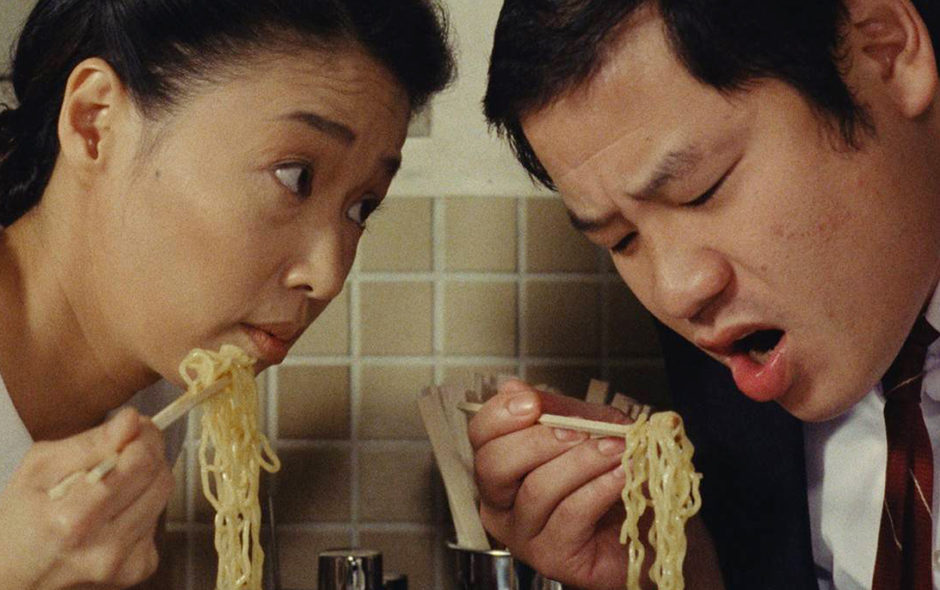Juzo Itami’s 1985 masterpiece – now playing in a new restoration – is frequently referred to as the “noodle movie.” More specifically, the comedy celebrates the culinary beauty of ramen, the noodles-in-broth concoction that uses the magic of a few simple ingredients – delicate slices of pork, a handful of spring onions and other veggies – to create a memorable, steamy and satiating eating experience.
Tampopo, the titular character, is a ramen cook who wants to become successful. She finds encouragement and mentorship from a ramen connoisseur, Gorō (Tsutomu Yamazaki), when he and his truck-driving coworker Gun (Ken Watanabe) stop at Tampopo’s near-empty joint. Together, Tampopo and Gorō go on to assemble a crew of noodle enthusiasts not dissimilar to The Avengers – except these guys have fewer emotional hang-ups.
The film uses the group’s dedication to mastering the culinary arts to explore the social, sensory, experiential and sensual dimensions of food. The film’s most notable reference is a Psycho-like peephole scene; but instead of prying on someone’s intimate space, Tampopo spies on a competing noodle cook to learn his recipe. This connects food to sex and intimacy, and Itami is quite forward in establishing this thesis throughout his film.
Another notable connection is found from a couple engaging in food-aided foreplay. They pass a raw egg back and forth from one open, hungry mouth to the other, bringing to mind the egg-centric sex play in the Japanese erotic arthouse film The Realm of the Senses. The film’s genre throwbacks are as effective as they are comedic – watch as Tampopo pushes herself to the limit during a gruelling training montage as Gorō times her efficiency at serving noodles.
Tampopo uses all of this — ramen, sexuality, self-improvement — to move thematically beyond simple noodles. Characters sexualize food, are denied it; discover new delicacies and textures; lie about eating it; and nearly choke to death on it. It’s all presented through a series of sub-plots, short and sweet digressions that pay homage to the absurd social scenarios of Jacques Tati’s Playtime.
Tampopo is a thriving, celebratory and delightful classic that will leave you ravished by the end, for ramen, Asian cuisine or really, any form of sustenance. Perhaps the greatest effect that Tampopo has on its viewers isn’t revealed until the next time they eat. Suddenly, you will find yourself paying a little more attention to the smells, tastes, textures and rituals involved.
Originally published in The National Post (December 9, 2016).

